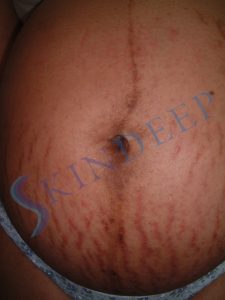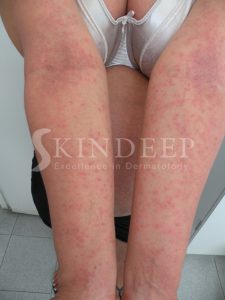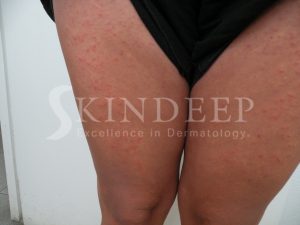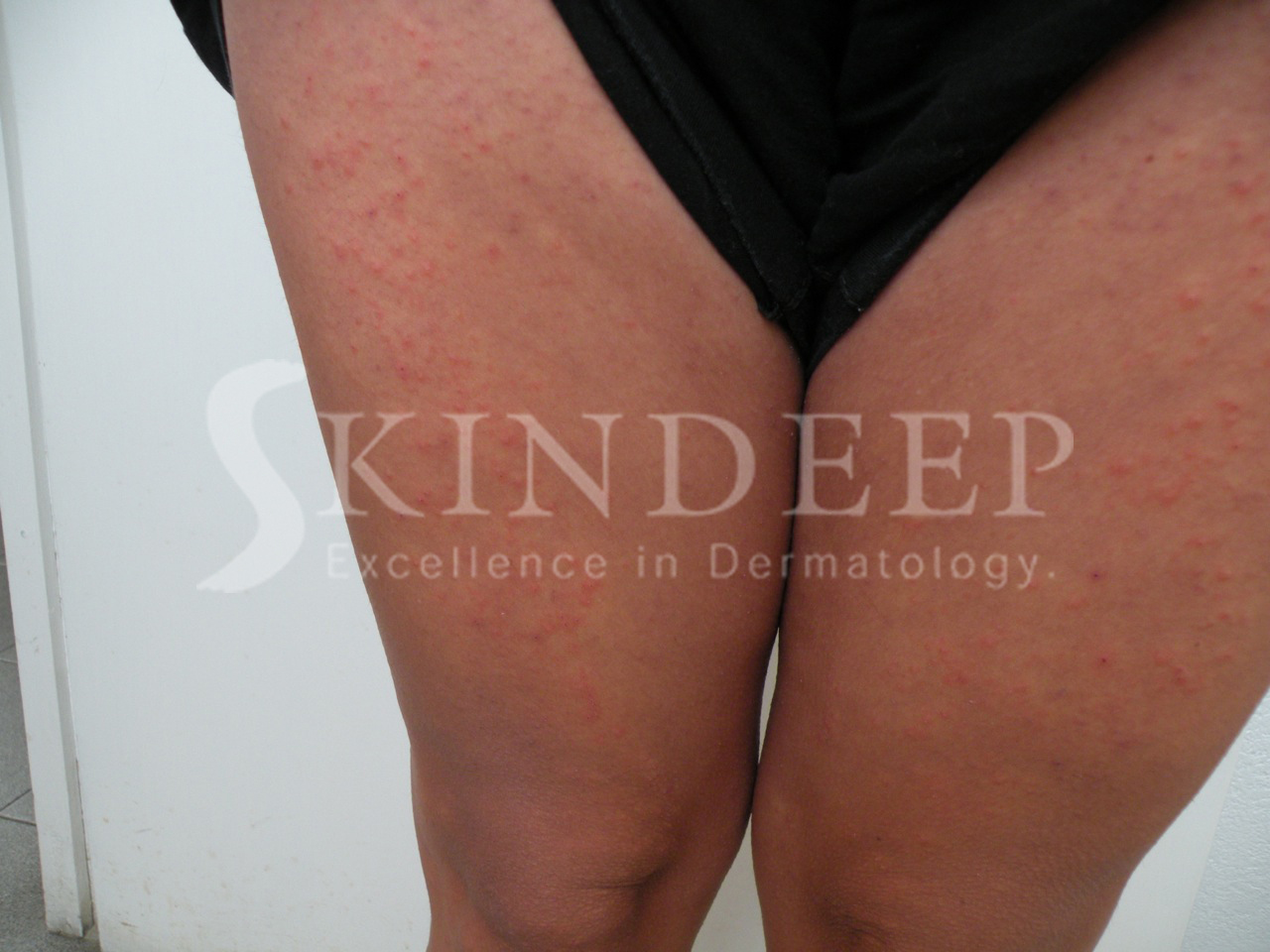Polymorphic eruption of pregnancy is an itchy rash, which occurs in the last trimester of pregnancy. This condition is also known as Pruritic Urticarial Papules and Plaques of Pregnancy (PUPPP). It occurs in about one in every 160 pregnancies in the literature. The average dermatologist in Barbados would see one or two cases per year. Women of all races are affected.

Most cases begin during the last three months of pregnancy when there is significant stretching of the abdomen. PEP commonly occurs during the first pregnancy when the abdominal stretch is tightest and starts around the navel. Excessive weight gain, heavy babies and multiple births accentuate this stretching and are associated with the condition.
Itchy red papules or bumps form in the stretch marks around the umbilicus initially. They can join together to form wheals (like hives or nettle rash) and larger raised plaques affecting the abdomen, upper arms, buttocks, thighs and legs. The area around the navel is characteristically spared. There may also be scratch marks as some patient finds it difficult to sleep at night resulting in fatigue and frustration.

This severe itching can be a cause of great distress for first time mothers and can also baffle doctors causing other diagnoses like eczema, viral exanthems, hives, eczema and scabies to be considered.
A dermatologist usually makes this diagnosis based on the history of the episode and the clinical findings. Rarely a skin biopsy is required to confirm the diagnosis. Fortunately PEP resolves a few weeks after delivery and would only persist longer if there are retained products of conception. Except for the small possibility of having a mild PEP like rash, babies are unaffected.

General treatment measures avoid irritation of the skin via; cool soothing baths, moisturisers, wet soaks and wearing cool soft cotton clothing. Specific measures are directed at controlling itching as well as skin inflammation via the use of antihistamines and topical steroids. Frequently the symptoms can be controlled using these measures and the pregnancy can progress smoothly. Recurrent episodes are very uncommon and even if it occurs in a subsequent pregnancy it is likely to be very mild.

